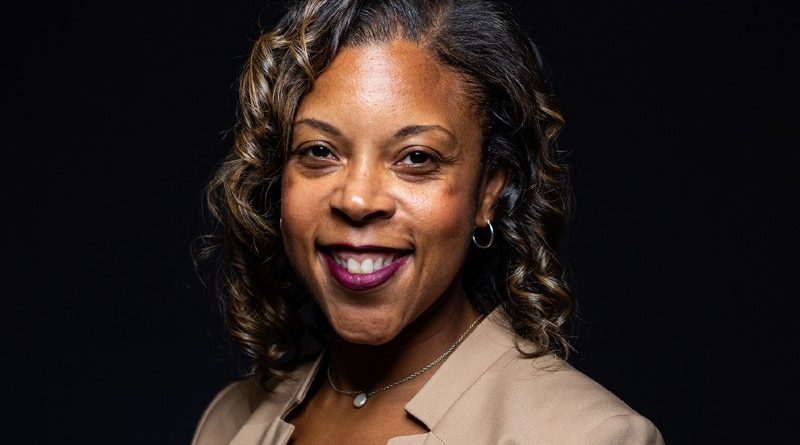An Interview with Vice President of Student Services Dr. Shawna Cooper-Gibson
Tell me a bit about yourself and your role as an administrator at Seton Hall.
I joined the Seton Hall family ten months ago. Prior to Seton Hall, I served as the Assistant Provost at Loyola University Chicago, Dean of Students of the School of Social Services Administration at the University of Chicago, Director of African American Student Affairs at Northwestern University, Assistant Director of the Student Activities Office at the Massachusetts Institute of Technology, and Assistant Dean of the School of Communication at Loyola University Chicago. At Seton Hall I manage seventeen areas of responsibility. Some of these areas are the exact skill set I bring with me from my previous positions, and a few, like Public Safety and Security, are new experiences for me.
What kind of change do you want to bring to campus?
Since I began my post in October 2019, I have led this division on the grounding of the 4 P’s and 3 C’s. The 4 P’s provides a framework and strategic approach to student success and retention. This starts with attention to the profile of the students who are admitted, focuses on ways the university can facilitate their progress toward degree completion, improves the process of navigating a complex institution and ensures that all students’ experiences in and out of the classroom fulfill the promise of the university (Kalsbeek, 2013).
What is the administration doing to promote racial equity at Seton Hall?
There have been a number of initiatives and offering in all areas of campus. In the Spring of 2019, The Office of the Provost secured a commitment from the deans of all colleges and the executive committee of the Faculty Senate to include student input in all full-time faculty searches. Additionally, our Inclusion Speaker Series was launched in the 2018-19 academic year and continued through the Spring 2020 semester. In curriculum, a new diversity core component is now required of all students in the College of Arts and Sciences.
Has the administration’s approach changed in light of recent events?
There have been more voices added to the discussion, which we are happy about. There has been a sense of awareness where there wasn’t before, and a larger community of those who want to learn and contribute. It has pushed the agendas we had already been working on, quite frankly, and showed the necessity and timeliness of all the initiatives we had already been working on. It also forced us to go deeper, look harder at where we can further the goals we had set for ourselves. Were we being realistic? Detailed enough? Inclusive enough? How could we take the outrage, sadness and frustrations from recent social injustices and use it as fuel to further our initiatives.
Has the University taken steps to address the issues addressed by the Concerned 44 protests in 2018/19?
Absolutely, but there is more to do. We took and still take their concerns very seriously. We want to shift the culture of the university to be obviously inclusive and diverse, so the conversation changes from what can we do, to what else needs to be added. Diversity needs to show up as an essential and fundamental part of who we are as a university, and I am committed to doing my part in seeing that play out.
A few of the issues that were addresses from that time were the appointment of Kelly Harris, Ph.D., in the College of Arts and Sciences as a full-time faculty member, forming the Diversity, Equity and Inclusion Committee and we are in the process of completing the charge for that committee, and appointing Lori Brown, J.D., as its Chief Equity, Diversity and Compliance Officer. Part of our goal moving forward is to be proactive and consistent, not reactive and varying. While we still have things to accomplish, I’m very proud of the progress that we have made so far.
How can students help the University in its efforts to promote diversity and inclusion on campus?
Students should be an integral part of the diversity, equity, and inclusion experience at Seton Hall. This is their university and their input is vital. There are a number of student organizations that have been a part of the DEI conversation all along, and students are welcome to join those groups such as Adelante, the Multicultural Advisory Committee, the Muslim Students Association, the Filipino League Association of Seton Hall, the American Sign Language/Deaf Culture Club and the Black Caucus. We have numerous student organizations, as well as programming and events for students to participate in at their level of involvement. In addition, we are seeking students to serve as Inclusion Alliance Participants. This program engages rising sophomore, juniors, and seniors to participate in DEI facilitation and peer-to-peer training for first-year students in University-Life. Students are encouraged to share their thoughts with the Diversity, Equity and Inclusion Committee through me directly or their student representatives.
As a Black woman who holds a senior leadership position at a university, what advice would you have for young people of color?
I think there are three important things to remember as a young person of color. First, think about what you see lacking on campus in terms of diversity, equity and inclusion and then figure out how you want to personally contribute to fill that void. Second, are you using your education, your skillset and your passions to not only positively change the campus but also the community? Our impact needs to be felt locally and globally. We need to be thinking short term and long term, always. Lastly, and most importantly, know your worth. Be confident in your abilities. There is always more we can learn or do, but young women of color are fully equipped to make a positive impact in their world now. Sometimes a fresh perspective or innovative idea is exactly what is needed. Have both the confidence, the willingness and the boldness to take your place in history. When the door is not quite open, build a new door or climb in a window. We belong in the rooms where the decisions are being made, just as much as anyone else.
-This interview was conducted by Editor-in-Chief, Jarrett Dang, on behalf of the Editorial Board.


